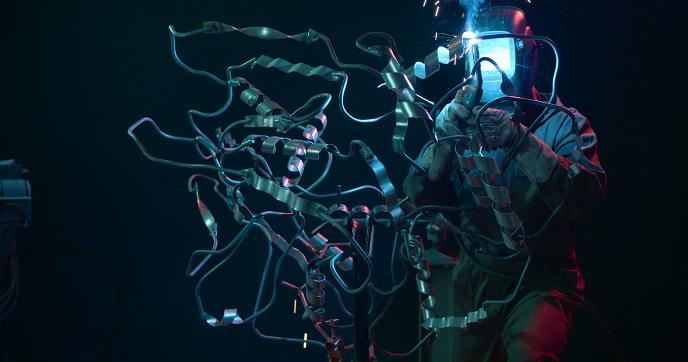Delivering a robust set of oxidative enzymes as biocatalytic tools for green chemistry
Industrial chemical conversions are typically conducted under harsh conditions (high temperature and pressure), often requiring toxic chemicals and generating hazardous by-products. In the pursuit of greener alternatives, enzymes have been heralded as a replacement for chemical catalysts – a process referred to as biocatalysis. Enzymes typically operate under mild reaction conditions, use cheap cosubstrates (e.g. oxygen) and display outstanding selectivity and good yields. Yet despite successes, full industrial-scale exploitation of biocatalysts is hampered by the instability of many enzymes. The EU-supported ROBOX (Expanding the industrial use of Robust Oxidative Biocatalysts for the conversion and production of alcohols) project established a collection of stable enzymes, along with industrial conversion protocols. The project succeeded in: developing an enzyme capable of oxidizing glycerol, applying P450 enzymes to produce drug metabolites on a large scale, applying ADH and BVMO enzymes to produce novel fragrance molecules, as well as precursors for specialty and performance polymers. Demonstrating target reactions of robust oxidative enzymes The sustainability and economics of industrial processes can be greatly improved with biocatalytic oxidation routes using molecular oxygen (from air) under benign and mild (pH) conditions, such as ambient temperature and pressure. But this approach, with its high costs (> EUR 1 000/kg) associated with the enzyme-catalysed step, has been considered too expensive. To address this, ROBOX explored the biotransformation viability of four types of robust oxidative enzymes. “These biocatalyst types perform oxidations with high selectivity and specificity, often accompanied with a good yield. These results would be difficult to obtain in standard chemical oxidations”, explains project coordinator Prof. Marco Fraaije. Glycerol is a major by-product of biodiesel production and a promising building block chemical, as its oxidation generates valuable compounds, such as glyceraldehydes, of interest for the production of fine chemicals, pharmaceuticals or amino acids. Monooxygenase (P450) enzymes in the human liver are responsible for detoxifying nearly all marketed drugs, and so biocatalytically producing drug metabolites at a large scale is of great importance for validating results in drug development and clinical trials. ROBOX also developed and applied robust Alcohol DeHydrogenase (ADH), Alcohol OXidase (AOX) and Baeyer-Villiger MonoOxygenase (BVMO) enzymes, in the biocatalytic production of novel fragrance compounds and polymer precursors, illustrating the superiority of this group of oxidative enzymes over traditional chemistry. ROBOX validated and optimised the target reactions for these enzymes at the lab-scale in pharma, nutrition, fine chemical and material applications. Where needed, the respective enzymes were improved by protein engineering or novel robust enzymes were identified through genome mining. “This integrated approach involved the entire chain from enzyme discovery to application at a large scale”, Fraaije says. “During the project, we dismissed some target reactions as not viable according to a rigorous techno-economic assessment. But this strategy worked successfully for most, enabling further exploitation of oxidative biocatalysis.” Expanding the toolkit of sustainable chemistry. The results of ROBOX contribute towards the production of green chemicals, as used in materials such as plastics, pharmaceuticals and inks – essential for the development of a biobased economy. To start quantifying green credentials, the ROBOX team performed a comparative life cycle analysis for one of the BVMO target reactions. “The respective enzymatic oxidation had a lower environmental impact compared to its chemical equivalent, if recycling of solvents and enzymes is considered. Moreover, the climate change impact of the biocatalysed reaction can be decreased by 71 % when renewable electricity is used,” says Fraaije. To date, the project has generated patents for project partners, as well as a start-up biotech company through the university of Groningen.
Keywords
ROBOX, biocatalyst, green, chemistry, oxidation, enzyme, pollution, industrial conversion, plastics, pharmaceuticals, biobased economy



